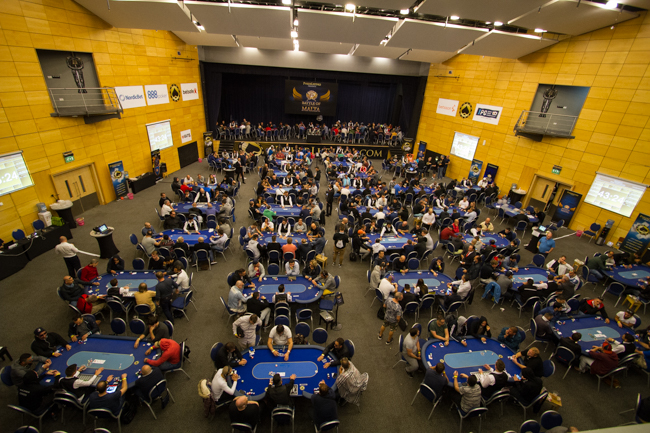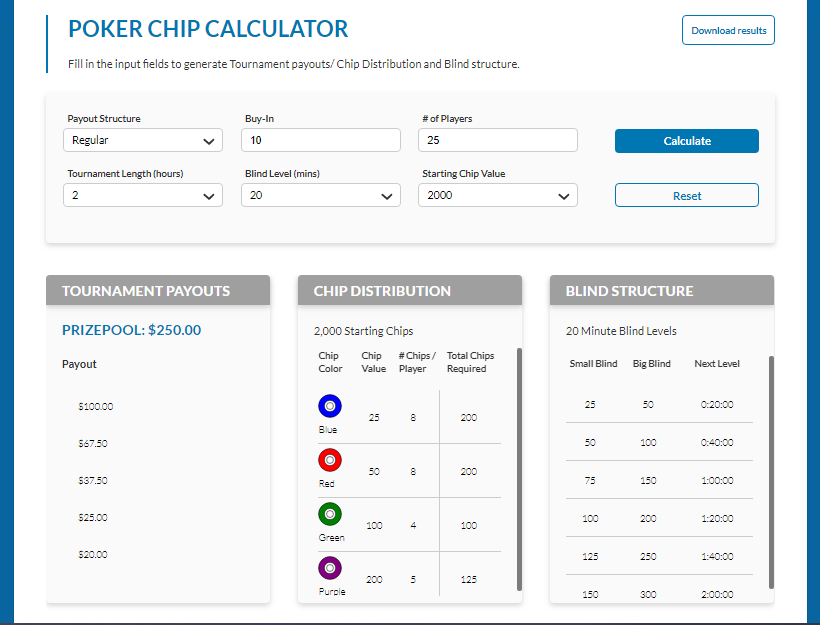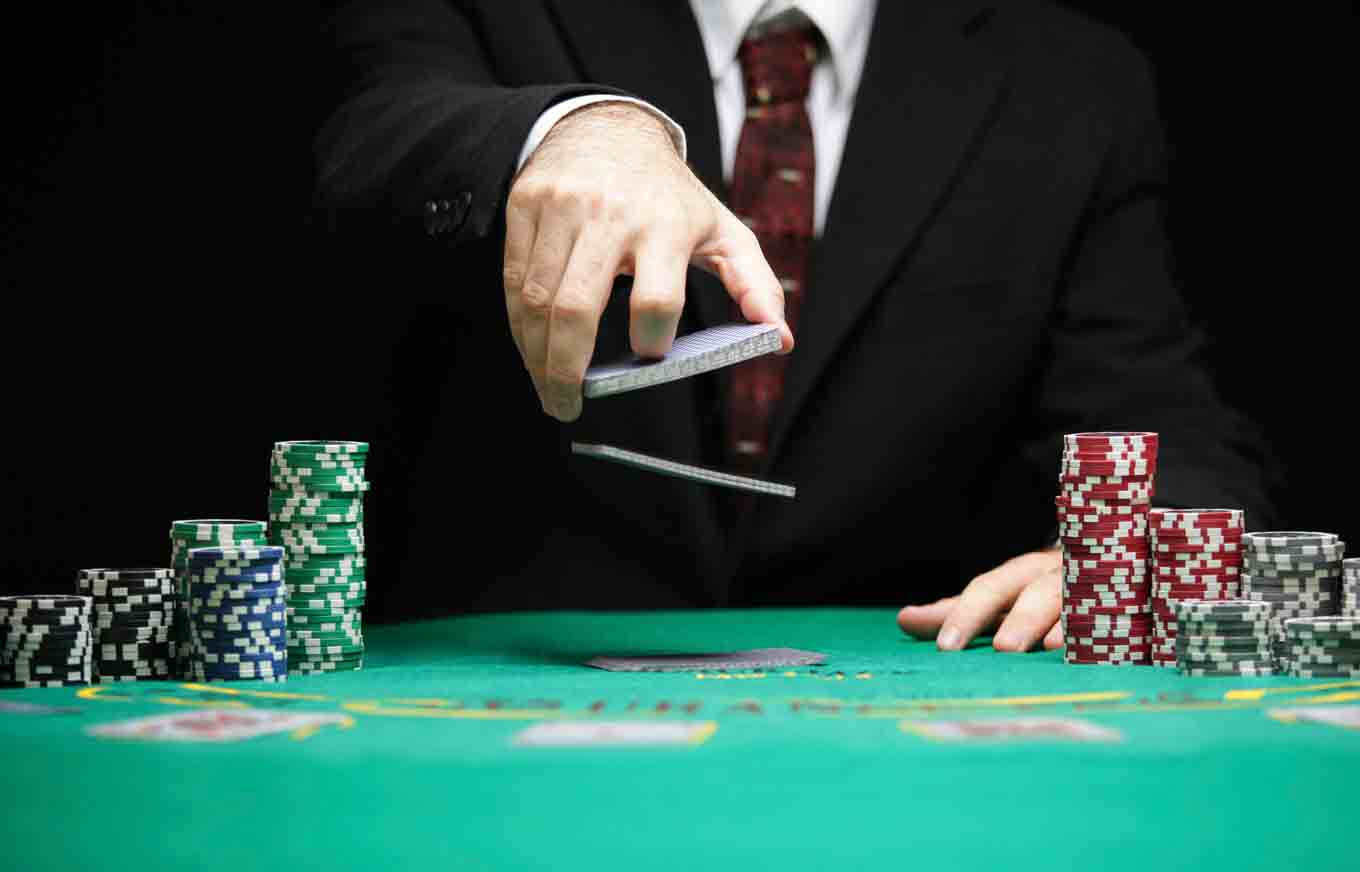How To Set Up A Poker Tournament
The blind structure (or schedule) is one of the most important details of running a successful tournament. Gradual increases of the blinds at each level and finishing on time are characteristics of a good blind structure.
How To Set Up A Tournament On Party Poker
Setting up a club - Under the Club Games tab, click on ‘Create Club’ - Choose a name, password, and a description which will be displayed in the club’s lobby - You've successfully created a club. Running the perfect home game is truly an art form.Fear not - as I have the complete guide to help you host your next big event! Jaime vlogs his everyday lif.
To calculate a blind structure, the minimum information you need is the number of players, target duration, and the starting blind level (which is usually the smallest chip denomination you have). It is also necessary to know how many chips there will be in play and how many rounds there will be. The blind calculator tool below can take care of that and help set up your perfect structure.
Eventually, the blinds (and antes) induce action to end the tournament. After all, a tournament usually does have a set duration (or a goal, anyway). As a player, it is up to you to figure out how aggressive it is necessary to play in order to keep up with the blinds. Constant gradual increases make this. So we've set you up with all the tools you need to get a successful home poker tournament off the ground. Now, it's over to you. Get the kit, find the players, and set the date already.


To calculate a blind structure, you need the starting blind level, the estimated total value of the tournament chips in play (initial buy-ins plus rebuys and add-ons) and the desired length of the tournament. Use the tool below to help set up your perfect structure.
This section discusses some tournament blind structure theory, which explains why the PokerSoup.com tournament blind structure calculator suggests blind levels the way it does and what you can change to create the right blind structure for your game.
Starting Number of Blinds
Most tournaments start with 50-100 big blinds. Anything around 200 big blinds is considered a 'deep stack' tournament. Deep stack tournaments are considered to be full of skillful poker play and not just pushing your money all in before the flop. The latter occurs quickly in tournaments that start with less than 50 big blinds, which are also aptly nick-named 'luck-fests'. There just aren't enough chips to maneuver and play real poker.
If all other variables are held constant, starting a tournament with larger chip stacks will increase the length of the game.
Rebuys and Add-ons
The number of rebuys and add-ons in a tournament also effect the total number of chips in play during a tournament. If no other changes are made, more rebuys and add-ons make for a longer tournament.
Blind Level Round Length
Most live tournaments employ blind level lengths of 15, 20, 30, 45, or 60 minutes. The blind calculator can calculate blinds for any of these blind levels. With a set tournament length, longer blind levels result in less number of rounds and shorter blind levels result in more rounds.
Gradual Blind Increase
How To Set Up A Poker Tournament Fundraiser
The greatest benefit of using the PokerSoup.com tournament blind structure calculator is the assurance of constantly increasing blind amounts. This is an important aspect of tournament play. If the blinds increase (preferably slowly) at a constant rate, players do not spend an inordinate amount of time being deep- or short-stacked and there are no game-altering blind increases in the middle of the tournament.
For example, if the blinds increase from 150/300 to 200/400, that is an increase of 33%, or (200+400)/(150+300). This is a comfortable increase. Similarly, in the later stages of the tournament after many players are knocked out, a blind increase from 3000/6000 to 4000/8000 is also 33%.
End Goal
Free Poker Tournaments For Cash
Eventually, the blinds (and antes) induce action to end the tournament. After all, a tournament usually does have a set duration (or a goal, anyway). As a player, it is up to you to figure out how aggressive it is necessary to play in order to keep up with the blinds. Constant gradual increases make this easier to figure out.

Step 3 of 10: Chips Setup
I typically use 5 total chip colors with the following values:
- White - $25
- Red - $50
- Blue - $100
- Black - $500
- Green - $1,000
I use the Poker Tournament Manager Deluxe chip calculator to determine how many chips of each color I need based on the number of players and the buyin chip value. One thing to consider is that you don't want the players to have to few chips because people will tend to go 'all-in' faster...so it is better to setup your chip distribution so that each player has 20 or more total chips when possible.
I always count out the chips prior to the tournament so that when players arrive and I check them in their initial buyin is ready to go. This greatly speeds up getting your tournament started.
Return to Step 2 Proceed to Step 4